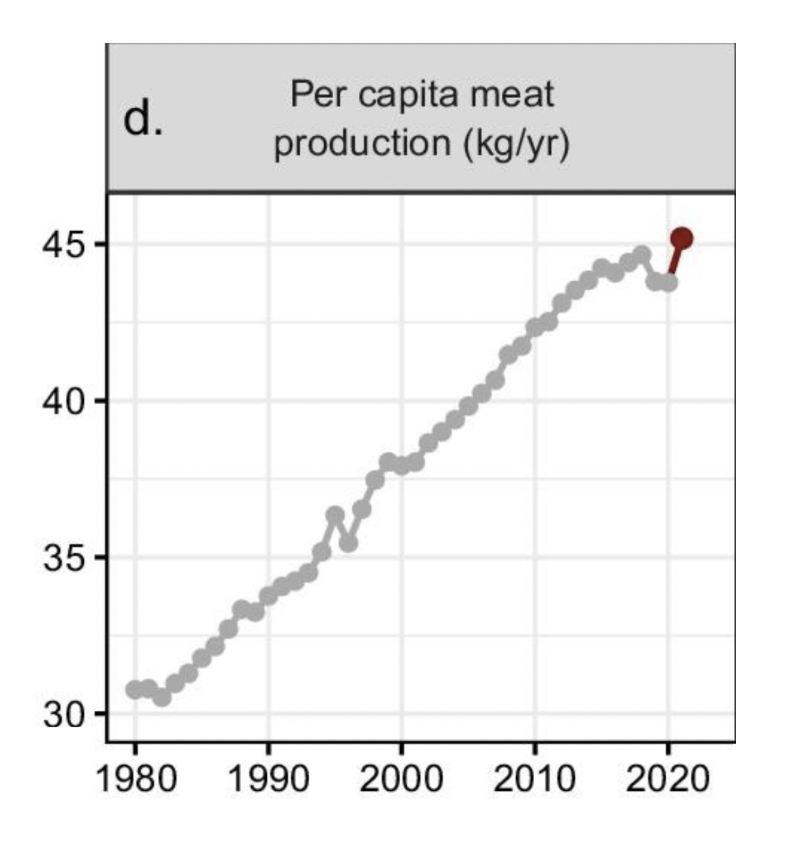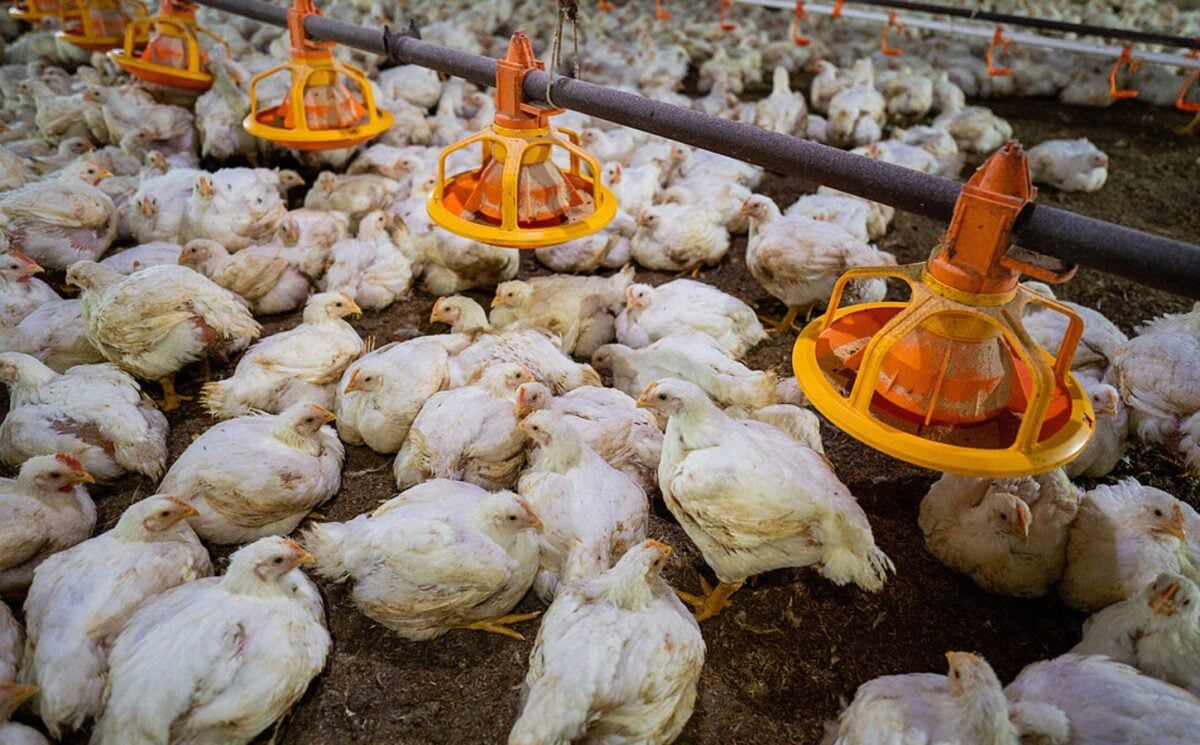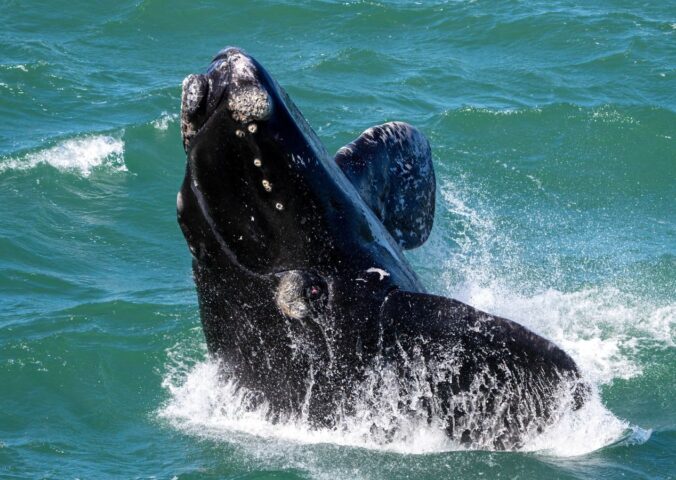A new roadmap released by the UN Food and Agriculture Organization (FAO) has mentioned “benefits” of cutting meat consumption in rich countries. However, it fell short of calling for a transition towards a plant-based food system. Instead, it urged the “intensification” of livestock.
In the hotly anticipated report, the FAO stated that “higher income countries can benefit from reduced consumption of animal-source foods.” However, it also suggested that “efficiency of production” should be the key focus for actions involving livestock.
The report was released on Sunday, 10 December, officially designated as COP28’s Food, Agriculture and Water Day. According to the organizers, more than USD $7.1 billion has been pledged to “climate positive action in the food system sector” at COP28.
Anita Krajnc, global campaign coordinator at Plant Based Treaty, an initiative with official UN Observer Status, told Plant Based News (PBN) that the FAO’s roadmap doesn’t go far enough to prioritize the most effective solutions. “The optimal diet by far is a vegan one,” she said. “We need to shift to a plant-based food system immediately.”
A roadmap for greater intensification
The FAO’s roadmap stresses the need for climate urgency. It explains that the Earth currently “faces crises, exceeding safe limits in six of nine planetary boundaries.” It also makes clear that these crises are “majorly tied to agrifood systems.”
Despite this, the report claims that livestock “serves as a crucial source of high-quality protein and essential micronutrients. Moreover, it claims that livestock is “vital for normal development and good health.” In fact, vegan diets can provide all the nutrients necessary for healthy development. They have also been shown to be healthier on many key indicators.
Several UN reports, including an IPCC Special Report on Climate Change and Land, recommend plant-based diets as the best route to minimize environmental damage. Yet, the FAO roadmap opts instead to promote intensification; it states that “[a]ctions targeting the livestock sector should prioritize enhancing the efficiency of production.”
For the FAO, this means “better livestock genetics.” In other words, rather than tackle the root problem (overconsumption of animal products), the FAO is seeking to update breeding techniques to make animal agriculture more efficient. Likewise, it plans to “adopt new feed solutions,” for example adding seaweed to cows’ diets to cut methane emissions.
One of the FAO’s recommendations involves “shifting from large ruminant to small ruminant animals for meat products, and from ruminant to monogastric animals.” The latter essentially means swapping beef for chicken. Dr Matthew Hayek, Professor of Environmental Studies at New York University, explained in a thread on X (formerly Twitter) why this is a bad idea. He calls the resulting effect a “zoonosis trap” because it means “sparing climate emissions from cattle, but raising virus and bacteria risks, which are greater in chicken.”
“Globally, we need to be producing and consuming a lot more healthy plant-based foods,” Hayek added. “This key, strong message was missing from a report that was supposed to address climate and nutrition.”
Environmental organizations worried by FAO’s omissions

The report also drew criticism from environmental groups. In a joint response with other environmental and animal organizations including REV and World Animal Protection, ProVeg International, a food awareness organization, highlighted the roadmap’s “omission of the impacts of industrial animal agriculture and the need to reduce and ultimately phase out our reliance upon industrial animal farming.”
Stephanie Maw, Policy Manager at ProVeg International, said in a statement: “We welcome the recognition by the FAO of the need to change diets for both human and planetary health. However, the Roadmap falls short of highlighting the specific benefits of transitioning towards more healthy, plant-based diets.”
Moreover, Maw lamented the focus on “methane reduction technologies” for livestock. Some of the technologies the FAO seems to be pinning its hopes on have shown mixed results or are not yet well developed.
The joint response also expresses disappointment with another of the report’s big ideas: using livestock methane for biogas. Doing so “risks creating perverse incentives to intensify and expand animal agriculture,” the statement explains.
All the while, the report “fails to recognise the critical need for consumption shifts and livestock herd reduction,” Maw added. “We would like the FAO to focus on reducing global farmed animal numbers while implementing policies that accelerate a just transition to healthier, more sustainable, plant-based diets,” she concluded.
A “Safe and Just” alternative
Plant Based Treaty was one of the co-signatories of the joint statement responding to the FAO roadmap. The group also released its own report – ‘Safe and Just’ – on the same day as the FAO.
This report set out the “vegan donut economics approach to the food system.” Referencing Kate Raworth’s famous “Doughnut Model,” the report proposes a plant-based food system for staying within planetary boundaries.
“Even if fossil fuel emissions ended today, global food emissions alone would make the Paris Agreement’s 1.5C limit impossible and the 2C target difficult to realize,” Steve George, Plant Based Treaty’s Science Ambassador, told PBN.
“One of the report’s key findings is global per capita consumption of meat has steadily grown since the 1980s,” added Krajnc.

The report shows that, between the early 1980s and early 2020s, meat consumption rose by 50 percent. From around 30 kg per year, it is now about 45 kg per year. “We need an agricultural revolution and paradigm shift to reverse this trend,” said Krajnc.
As the FAO’s reluctance to promote plant-based diets shows that resistance to proven solutions remains. Ahead of COP28, documents revealed that the meat lobby was preparing to go on the attack to promote animal agriculture.
“Plant Based Treaty calls for a major redirection of subsidies that promote increased meat and dairy consumption,” said Krajnc. This extra money could help “fund education and improve accessibility to sustainable plant-based food.”
Escaping “tunnel vision”
Earlier this year, the Guardian revealed how the FAO downplayed livestock’s contribution to methane emissions. Since then, the organization has doubled down on the false claim that meat products are “essential” for some nutrients.
A similar “tunnel vision” is apparent in how policymakers have put carbon emissions at the front and center of discussions. “COP28’s ‘carbon tunnel vision’ can overshadow other interconnected planetary crises, particularly rapid biodiversity loss, which is integral to Earth’s systems,” George said. “Dietary change is imperative to reduce food’s impact on climate change, land use, biodiversity, freshwater use, ocean acidification, and as a future carbon sink, to strengthen biosphere resilience,” he added.






